Published by Stiftung Künstlerdorf Schöpingen
The seminar which ran from July 11–18, 2022 was developed in collaboration with the CCA Temporary Gallery / Cologne (temporarygallery.org). It was part of the CAP (Curating for Advanced Practices) program of the Stiftung Künstlerdorf Schöppingen
In summer of 2022 Aneta Rostkowska, Nada Rosa Schroer and Julia Haarmann curated and hosted an incredible (“life-changing”) residency and workshop in Schöppingen in North Rhine Westphalia. What transpired continues to nourish and inform my research.
“In recent years there has been a proliferation of art exhibitions on plants and ecology accompanied by a fascination with indigenous thinking and various forms of collective work in art institutions. At the same time, there has been a growing disillusionment with the art world itself: For example, in its lack of solidarity, exploitative working conditions, short-term funding paired with shrinking structural support, a superficial understanding of diversity, strong hierarchical structures at art institutions, compulsive self-branding or the cult of mobility and flexibility. The art system perfectly mimics the neoliberal economy that we all live in. Our disappointment, however, often does not translate into concrete actions—“neoliberal art realism” (a term inspired by Mark Fisher’s “capitalist realism”) permeates everything as the sense that the status quo of the art world is the only viable one and it is impossible to imagine an alternative to it.”
Permaculture is a problematic subject in the settler colony of Australia, it’s ideas are informed by Indigenous approaches to care and custodianship of place and this is often not acknowledged. Here too, many plants included in permacultural plans are not from here and perhaps don’t contribute to biodiversity and are part of agricultural erasures of pre colonial ecosystems. But I found the space for thinking critically and collectively about these contradictions alongside the possibility of custodial relationships and mycelial networks offered us paths for imagining and implementing other ways to be cultural workers in these complex times.
“We will bring in the teachings of plants and permaculture that has mostly functioned as exhibition content into the structures of our work, in order to inform our curatorial practices. How can the ethics of permaculture (earthcare, peoplecare and fairshare) inspire a lasting transformation of art institutions beyond the superficial application of ecological guidelines? Can the regenerative aspect of permacultural thinking be transformed into a regenerative philosophy of an art institution? Could this thinking translate to sustainable community-based practices focused on emancipatory forms of working together and collective care for ecological and social commons?”
In the publication produced as a reflection I share a response to some of the questions about weeds and plants that arose through the seminar and how that continues to resonante in the the weeks and months that follow. I tell stories of plants, their complex relationships to place and the way they insist on life and the contradictory feelings that their consumption can evoke. Utlimately “I wonder if the weed might embody this messy, uncontrolled and uncontained set of contradictions, especially and as long as weediness and its many and proliferating problems are taken in context rather than applied as universal values across often uneven terrains.”
Gratitude goes to all of the wonderful beings that took part in the residency – the Art Residency Research Collective (Pau Cata/Morag Iles/Miriam La Rosa/Patricia Healy McMeans/Angela Serino), Giulia Bellinetti, Felipe Castelblanco, Viviana Checchia, Culture for Climate (Ewa Chomicka/Anna Czaban), Madeleine Collie, Clelia Coussonnet, Alfred Decker, T. J. Demos, Marianna Dobkowska, our amazing chef Paula Erstmann, Maja & Reuben Fowkes, Yoeri Guépin, Michael Marder, Riya Matthew, Lola Malavasi Lachner, Anna Melnykova, Reilly Miller, Paloma Nana, Camilo Pachón, Sour Grass (Annalee Davis/Holly Bynoe), Ela Spalding, Stéphane Verlet Bottéro, Johanna Hebbel, the whole Künstlerdorf Schöppingen team, the plants, animals, insects and microbes, the nourishing food, the air and water, the fire, the sun and the moon, the place and architecture that provided shelter, and of course the patrons of this project Kunststiftung NRW, The Friends of Kunstlerdorf Schoppingen and the International Visitors Program of the NW KULTURsekretariats. My gratidude to Monash University Curatorial Practice for making this travel possible.
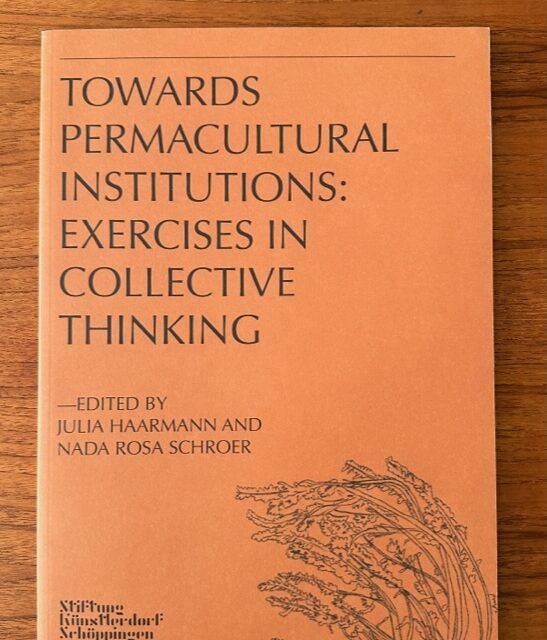
Cover of publication
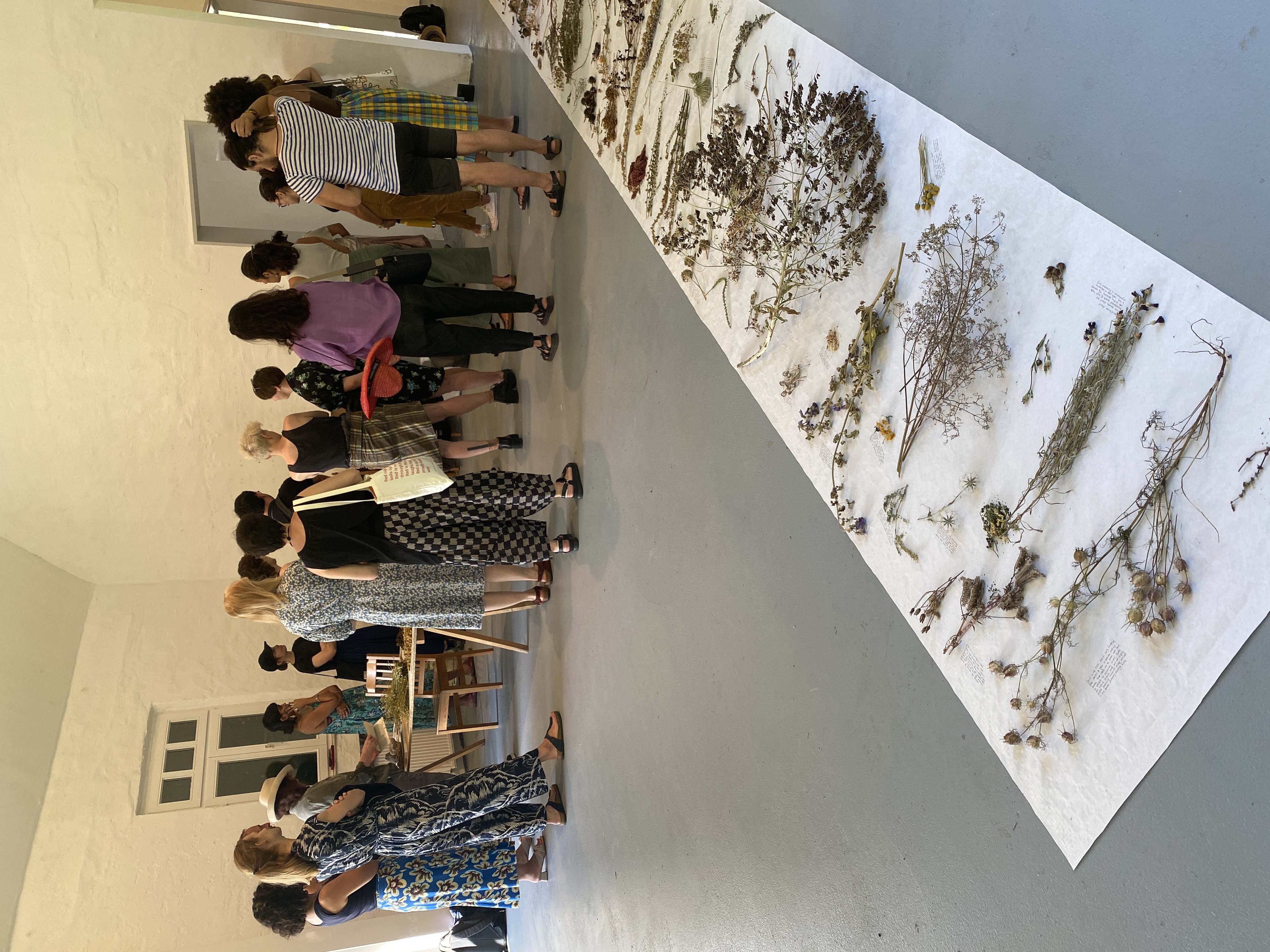
Workshop with Yoeri Guépin
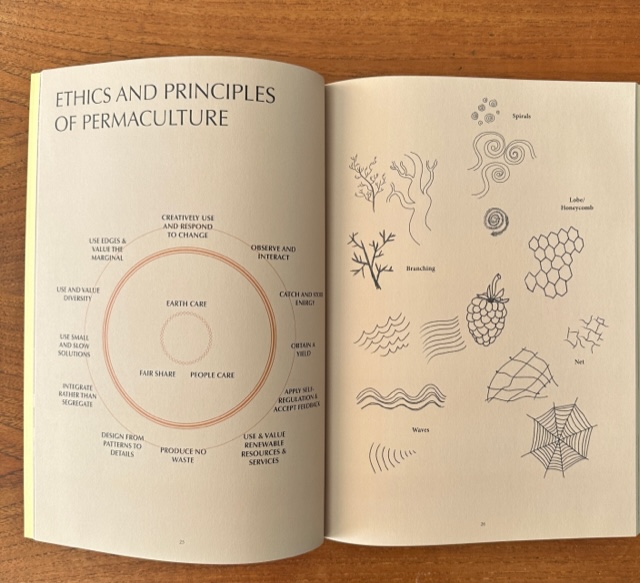
Permaculture Ethics Spread
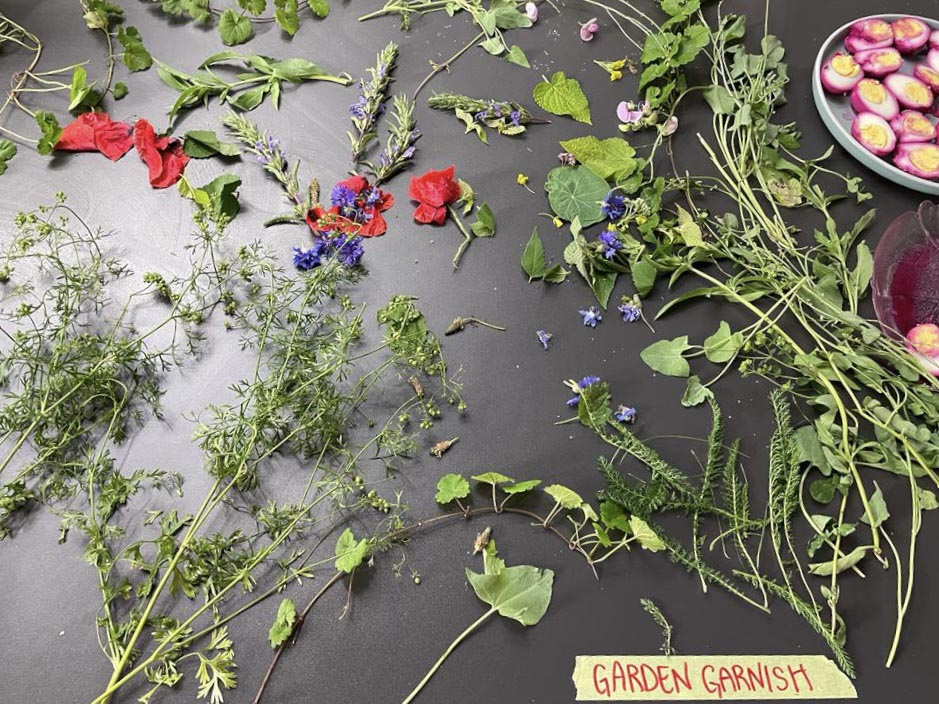
Garden Garnish from Paula Earstmen
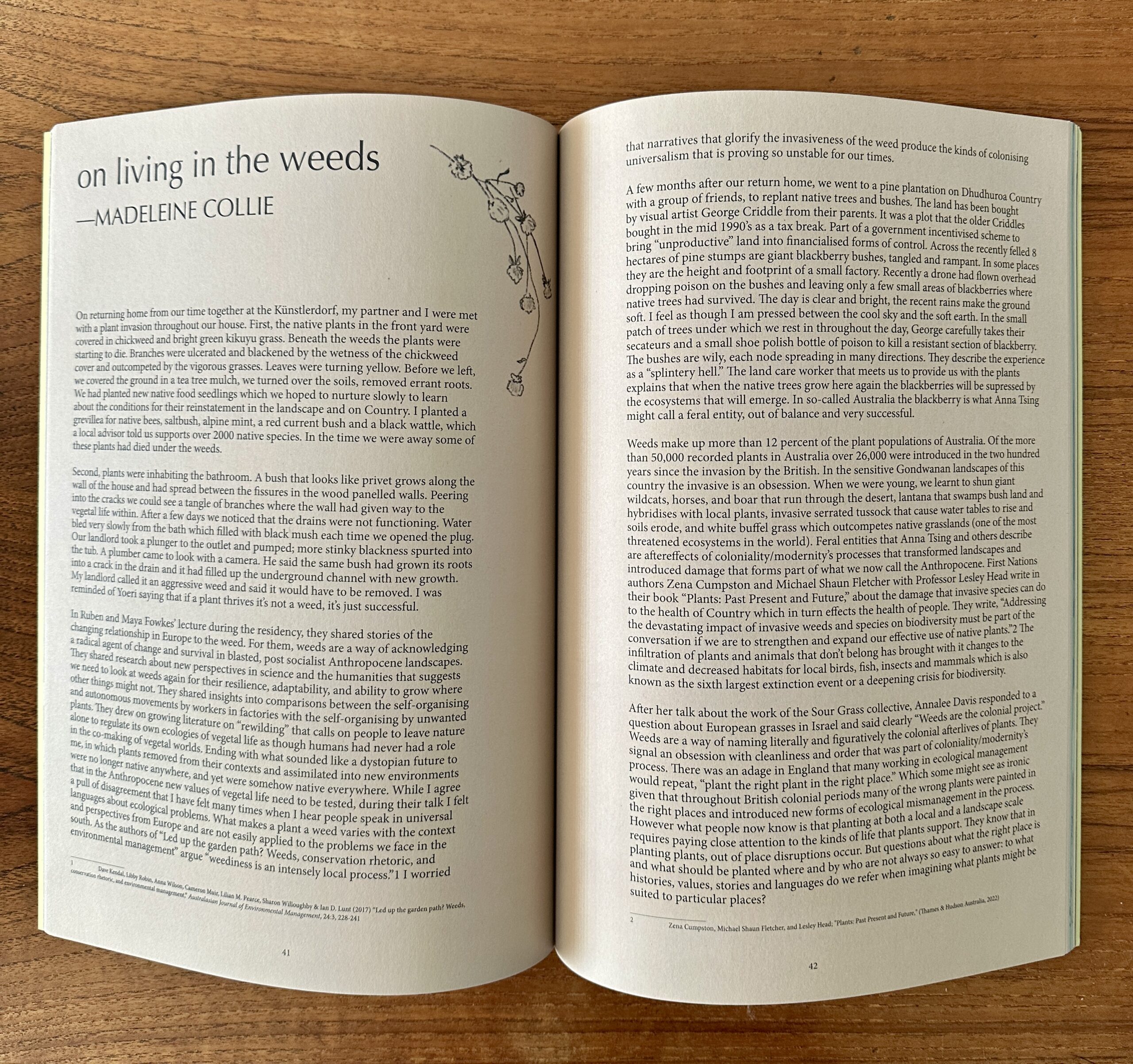
On living in the weeds spread